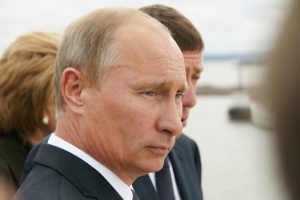Russia is far from pleased with Sweden’s plans for a NATO base on Gotland.
Others are reading now
As Sweden inches closer to establishing a NATO military base on the picturesque island of Gotland, the waves aren’t just crashing on the Baltic shores but also in the halls of power from Stockholm to Moscow.
Russia has vocally criticized the plan, labeling it a “provocation” that threatens to turn the historically tranquil Baltic Sea region into a hotbed of geopolitical strife.
The serene island of Gotland, known for its medieval towns and rugged cliffs, might soon find itself at the heart of a major geopolitical showdown.
Russia’s response to Sweden’s NATO aspirations is stark, forecasting a future where the Baltic Sea morphs from a peaceful expanse into a zone of military confrontations. The strategic importance of Gotland, lying smack in the middle of the Baltic Sea, cannot be overstated, acting as a potential stronghold in the event of regional tensions escalating.
Also read
A Strategic Pivot or a Precipice?
Sweden’s move towards establishing a NATO presence on Gotland signifies a significant shift in the country’s defense strategy, reflecting growing concerns over regional security amidst rising tensions with Russia.
This strategic pivot, however, is seen by Russia as a direct challenge, with implications far beyond the shores of Gotland.
The island’s potential militarization is a contentious issue, underscoring the delicate balance of power in the Baltic region.
Russia’s stark warning highlights the precarious nature of this transformation, pointing to a future where the Baltic Sea could once again become a frontline, albeit in a much different context than centuries past.








